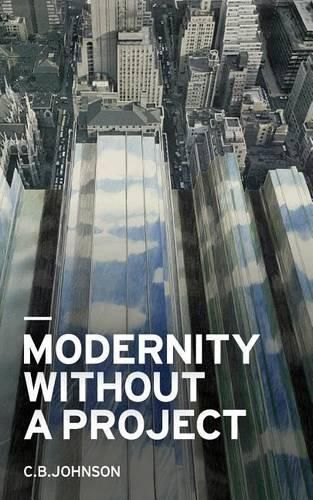Readings Newsletter
Become a Readings Member to make your shopping experience even easier.
Sign in or sign up for free!
You’re not far away from qualifying for FREE standard shipping within Australia
You’ve qualified for FREE standard shipping within Australia
The cart is loading…






This book touches at hot stuff. Not only have we ‘never been modern’ (Latour) or postmodern, but even not so contemporary. C.B. Johnson offers a glimpse into what is, at best, a strange and Utopian, millenaristic condition (Agamben), at worst, an arrogant attempt on the part of power to put an end to the flow of time. (Franco La Cecla, author of Against Architecture)Entering the 21st century, the postmodern succession has given way to a doom-laden, apolitical orthodoxy. This book offers suggestive readings of the contemporary in light of high modernity, postwar modernity, and postmodernity, as framed by the influential institutions of modern art and the spectacles of millennial architecture. Modernity without a Project critiques and connects historical avant-garde currents as they are institutionally expressed or captured, and scrutinizes the remake of New York’s Museum of Modern Art, Minoru Yamasaki’s vanished Utopias, the anarchitecture of Lebbeus Woods, recent work of Rem Koolhaas, delirious developments in Dubai, and the unexpected contribution to architectural debate by the late Hugo Chavez.
This book makes an important contribution in defining and evaluating the alternative concept of ‘contemporaneity’ … . Scholars and students of modernism, of museum history and of modern architecture in general will find Modernity without a Project highly relevant and stimulating. (Bart Verschaffel, Professor of Architecture at Ghent University)
This provocative and interesting book argues that the celebratory discourse of ‘the contemporary’ is not as innocent as it seems, but is geared towards cancelling out or negating the capital-unfriendly scepticism of modernism and postmodernism. This study contributes significantly to the field of what might be termed critical cultural studies, particularly with regard to the understanding of art and architecture as they are mobilised in the first part of the 21st century. (Professor Ian Buchanan, Director of the Institute for Social Transformation Research, University of Wollongong)
$9.00 standard shipping within Australia
FREE standard shipping within Australia for orders over $100.00
Express & International shipping calculated at checkout
This book touches at hot stuff. Not only have we ‘never been modern’ (Latour) or postmodern, but even not so contemporary. C.B. Johnson offers a glimpse into what is, at best, a strange and Utopian, millenaristic condition (Agamben), at worst, an arrogant attempt on the part of power to put an end to the flow of time. (Franco La Cecla, author of Against Architecture)Entering the 21st century, the postmodern succession has given way to a doom-laden, apolitical orthodoxy. This book offers suggestive readings of the contemporary in light of high modernity, postwar modernity, and postmodernity, as framed by the influential institutions of modern art and the spectacles of millennial architecture. Modernity without a Project critiques and connects historical avant-garde currents as they are institutionally expressed or captured, and scrutinizes the remake of New York’s Museum of Modern Art, Minoru Yamasaki’s vanished Utopias, the anarchitecture of Lebbeus Woods, recent work of Rem Koolhaas, delirious developments in Dubai, and the unexpected contribution to architectural debate by the late Hugo Chavez.
This book makes an important contribution in defining and evaluating the alternative concept of ‘contemporaneity’ … . Scholars and students of modernism, of museum history and of modern architecture in general will find Modernity without a Project highly relevant and stimulating. (Bart Verschaffel, Professor of Architecture at Ghent University)
This provocative and interesting book argues that the celebratory discourse of ‘the contemporary’ is not as innocent as it seems, but is geared towards cancelling out or negating the capital-unfriendly scepticism of modernism and postmodernism. This study contributes significantly to the field of what might be termed critical cultural studies, particularly with regard to the understanding of art and architecture as they are mobilised in the first part of the 21st century. (Professor Ian Buchanan, Director of the Institute for Social Transformation Research, University of Wollongong)